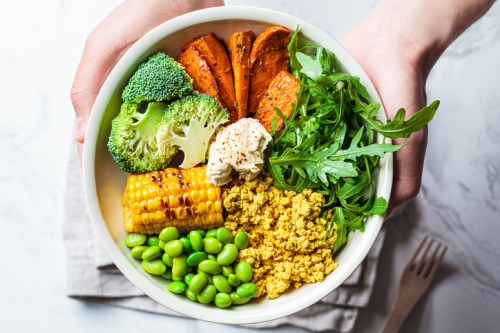A Top Functional Medicine Doctor Explains Why NMN Shows Early Promise for Promoting Longevity
Early research links the NMN molecule to longevity—here's what doctors want you to know about the age-defying molecule.

When it comes to living a longer, healthier life, you probably know the basics: Research indicates that diet, exercise, and modulating your stress levels are vital for adding quantity and quality to your time here on Earth. Still, every day, scientists and researchers are looking for new sources of longevity. In the last few years, a small but compelling body of research has found that nicotinamide mononucleotide (NMN—not to be confused with M&M’s), a molecule that occurs naturally in all living things, may show promise for increasing your lifespan. If right about now, you’re thinking: Molecules? Cellular processes? What? Don’t worry. Ahead, functional medicine doctor Frank Lipman, MD, gives us the 411.
Experts in This Article
functional medicine doctor and chief medical officer at The Well
NMN is a form of vitamin B3 that occurs naturally in all living things, says Dr. Lipman. It’s a precursor to nicotinamide adenine dinucleotide (NAD), which is one of the most abundant and crucial coenzymes in your cells, Dr. Lipman says. In other words, NMN becomes NAD through a series of chemical processes, and NAD helps your cells function properly. “When it comes to anti-aging, we talk about sleep, exercise, and diet, but cellular aging or deterioration of cellular function is one of the hallmarks of aging,” says Dr. Lipman. NAD levels decrease with age, and research even indicates that human beings lose about half by middle age. He adds that other factors like stress, poor diet, or stagnancy may also slow the process.
It’s important to note that NAD research is still new: The first human clinical trial of NMN happened less than 10 years ago. However, if you’re wondering how, specifically, NAD may increase lifespan, science tells us a few things. First, there’s evidence suggesting that NAD may help the body repair neuronal stress or stress that occurs in the brain’s neurons in animal test subjects. This indicates that NMN may protect the brain against memory loss. Scientific research also suggests that NAD may increase endurance and strengthen the muscles, and lengthen lifespans by improving mitochondrial functions. But again, it’s worth remembering that the vast majority of this research has been conducted on mice—so take it as a grain of salt for now.
One of the biggest bummers of NMN? Dr. Lipman says you can’t really rely on foods to get your daily fill (like you would, say, eat an orange if you wanted some vitamin C). While NMN naturally occurs in broccoli, edamame, and cabbage, these foods contain trace amounts. And though some people take NMN in supplement form, Dr. Lipman points out that it’s still unclear how easily absorbable these supplements are. “I’ve been in the supplement world for so long. [Supplement companies] always say this has X amount of this, but whether it’s absorbed is another story,” he explains. Research will likely continue on NMN over the next several decades, so stay tuned. In the meantime, stick with those tried-and-true longevity tips that have years of data behind them.
Oh hi! You look like someone who loves free workouts, discounts for cutting-edge wellness brands, and exclusive Well+Good content. Sign up for Well+, our online community of wellness insiders, and unlock your rewards instantly.
Sign Up for Our Daily Newsletter
Get all the latest in wellness, trends, food, fitness, beauty, and more delivered right to your inbox.
Got it, you've been added to our email list.










